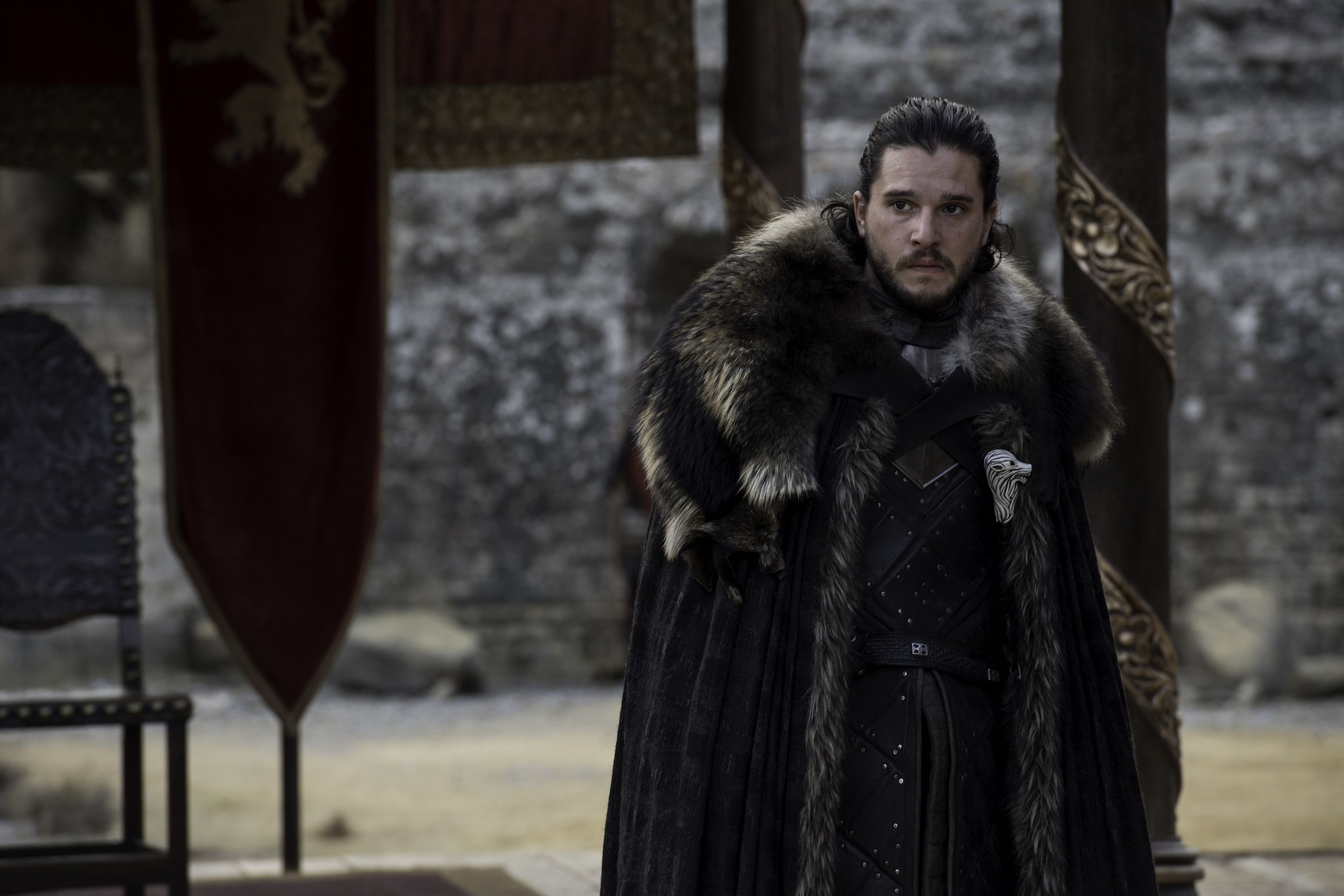
File download is hosted on Megaupload
Family is everything. That was Tywin Lannister’s (Charles Dance) lesson, even if his interpretation of the sentiment left something to be desired. More than the moment, more than a fleeting grievance, he tried to teach his children that the Lannister name was their legacy and that their family is what truly mattered. “The Dragon and the Wolf” plays with this idea, the concept of who genuinely cares about the blood of their blood, who’s willing to put their own ambitions above the same, and what it gets each of them.
The episode accomplishes this with two fake-outs that go in opposite directions. The first comes from Cersei (Lena Headey), who, along with her coterie, faces down Daenerys Targaryen (Emilia Clarke) and her allies in a King’s Landing’s derelict dragon pit. It’s the culmination of Team Dany’s efforts over the past couple of episodes. This sit-down is their chance to prove that the White Walkers are real and hopefully forge some sort of truce until the dead can be conquered and the living can return to their internecine squabbles.
Despite some intense moments when a wight is let loose and stops inches away from Cersei, the scene as a whole plays as too stiff and practiced. While the pairings the scene produces are intriguing enough — with reunions for the Cleganes, the Greyjoys, and Brienne (Gwendoline Christie) and Jaime (Nikolaj Coster-Waldau) — there is a stiltedness to the presentation that weakens the proceedings. Regardless of the momentousness of this meeting of the monarchs, the whole thing seems like an excuse to trot out the old, stubborn sense of Stark honor, with Jon (Kit Harington) refusing to swear not to take up arms against Cersei, even if it would seemingly ensure the truce he and his compatriots fought so hard to make possible.
But then Tyrion (Peter Dinklage) goes to talk to Cersei and tries to salvage a diplomatic solution. Maybe it’s just the benefit of putting stellar actors like Peter Dinklage and Lena Headey on screen together for the first time in years, but there’s an electricity to their encounter. Recriminations abound, sympathies are offered, and longstanding grudges are unearthed once more. When push comes to shove, though, Tyrion demands that if there’s nothing his sister wants from him, she should kill him, going so far as to order The Mountain to do the deed right then and there.
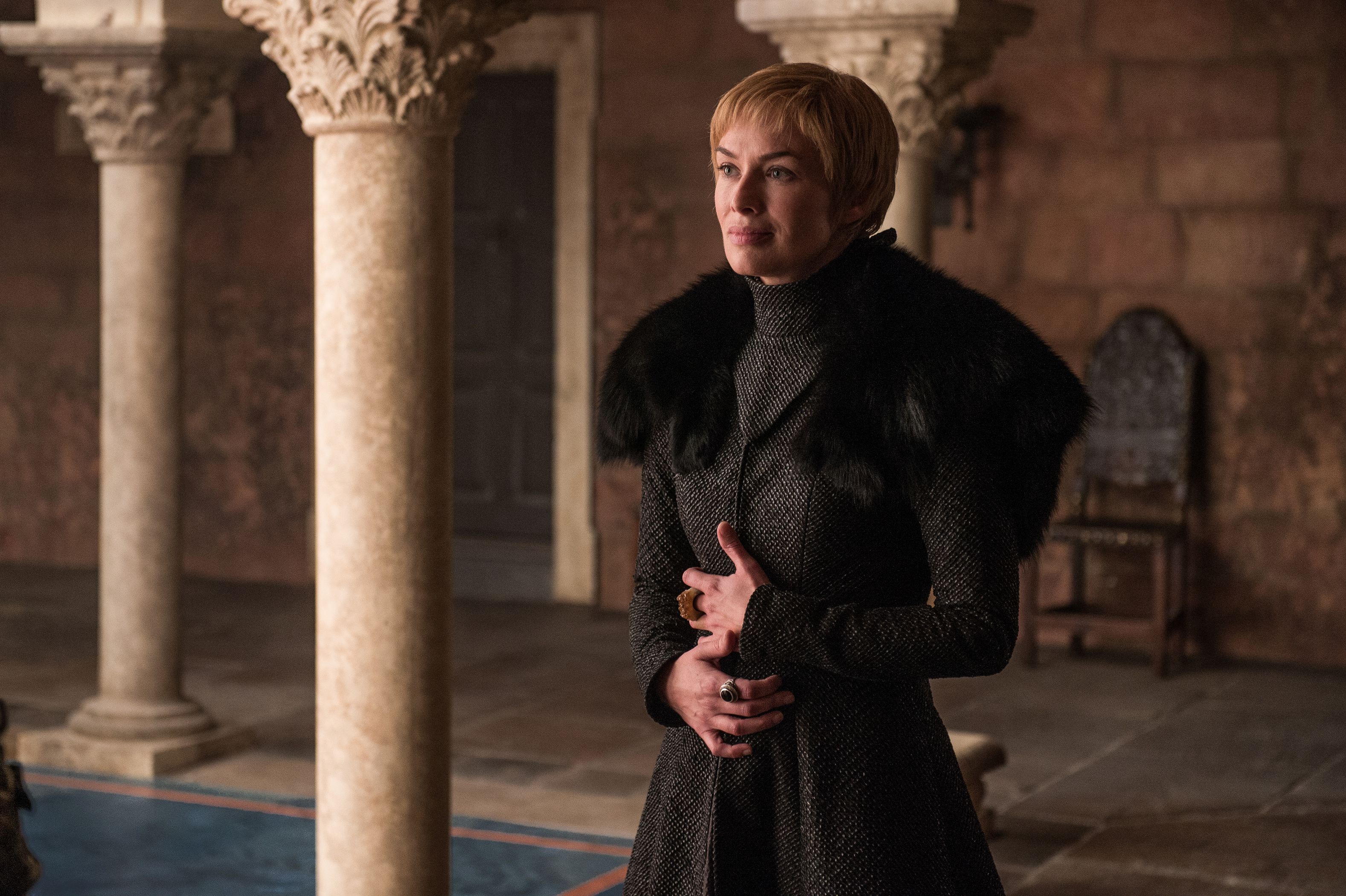
Despite the curled sneer at the edge of her expression, Cersei (seemingly) cannot do it. There stands her brother, the one who took away her parents, her children, and yet even the woman who finds grand creativity in cruelty cannot lay down the sentence. She places a hand to her stomach and conveys the sense that she is innately incapable of destroying their family, their future, any more than she would allow Tyrion to do so.
And yet it’s a feint, a farce, a show to persuade her enemies that she’s had a change of heart and intends to send her armies to fight the dead. Her real plan is to let “the monsters” destroy one another and allow her to pick up the pieces. She even sends Euron off, not out of fear of the wights as he claims, but to ferry The Golden Company from Essos to join her war effort.
That’s who Cersei is, using true feelings to brace her deceptions, pretending that her family matters to her, that it cuts through even her deepest, oldest sibling resentments, in order to ensure her victory. It is a falsity, another mask to be worn when needed and discarded as soon as it’s no longer useful.
In Winterfell, however, the feint goes the other way. The filial strife is the falsehood, rather than the true sentiment behind the mask. Game of Thrones bends over backwards to convince its audience that Sansa (Sophie Turner) is ready to kill Arya (Maisie Williams) for the good of her people and The North as a whole. She hints to Littlefinger (Aidan Gillen) at discord between her and Jon, at the longstanding enmity between her and Arya reaching a fever pitch, and at an inevitable confrontation.
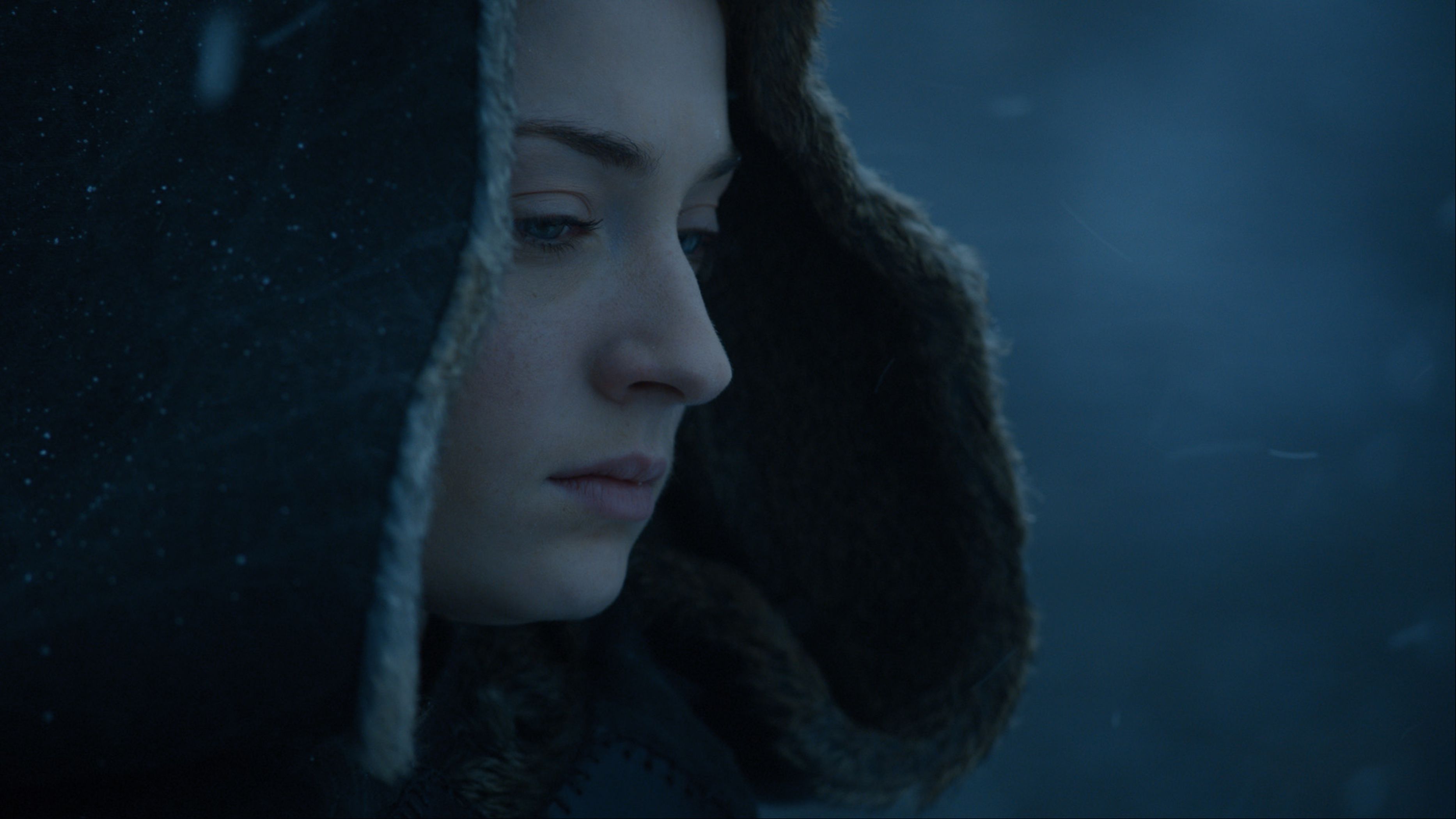
The ensuing reveal that she and Arya are playing Littlefinger is a nice enough twist. But in “The Dragon and the Wolf”, it comes off as too obvious. Count me among those who believed there was genuine suspicion and mistrust between the two sisters (and perhaps there really was up until that moment). But the instant Sansa began running through Littlefinger’s exercise, imagining the worst thing her enemy could want and why it would lead them to say the things they’ve said, it became clear that her target was Lord Baelish and not her sister.
That’s why the scene where Littlefinger, the man who set all these terrible events in motion, receives his comeuppance doesn’t feel as satisfying as it should. This is a man who betrayed Ned Stark (Sean Bean), who misled Catelyn Stark (Michelle Fairley), who sold Sansa to Ramsey (Iwan Rheon) and has been a force for ill for far too long. His death should feature the triumphant slaying of one of the last great foes of the Starks. But it’s rooted in a reveal so telegraphed in the run-up to its culmination that even a final scene of bargaining and pleading turns into something too unremarkable.
It proves one thing, though — that despite their differences, Sansa and Arya still love one another and intend to stick together. Arya may still think her sister is officious and prissy, and Sansa may still believe that Arya is “weird and annoying,” but their familial bond persists against those who would drive them apart. Their shared moment on the ramparts of Winterfell works, and it’s one of the most heartening scenes in an episode that often goes for catharsis and comes up empty handed. As much as Game of Thrones has stumbled in its major plot developments in recent weeks, it still knows how to sell those one-on-one moments that are the lifeblood of the series.
The same is true for the exchange between Jon and Theon (Alfie Allen) at Dragonstone. If anyone knows the difficulties of family loyalty, the tough position it puts people in, it’s Theon. In his own way, he pleads for forgiveness from Jon, confessing his struggle to know when and whether to be a Stark or a Greyjoy. Jon offers him absolution, affirming Theon as not one or the other, but both, and it seems to give Theon the closure and cleansing he needs to move on.
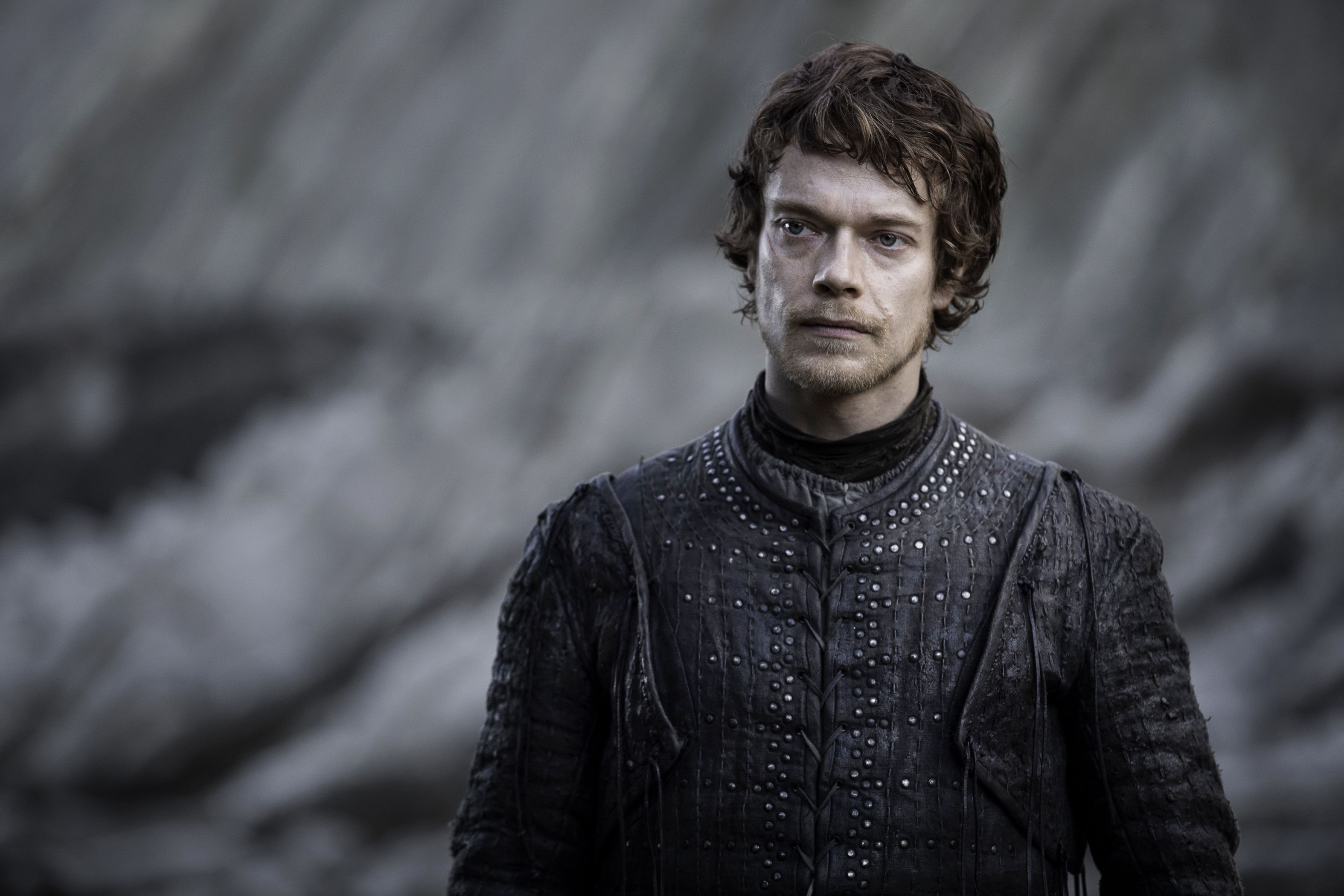
It’s a scene that shouldn’t work. It’s too neat and too performative, and Theon’s been through too much to have everything wrapped up so easily. But again, the performances save it. No one suffers on the screen like Alfie Allen, and while initially a bit stolid in the early days of the show, Kit Harrington has found layers in Jon Snow, ones that allow him to seem commanding and confident, but also capable of offering a calm but firm empathy for his prodigal brother. There is history and emotion between them that carries the day and conveys the bond between less-than-full Stark sons that’s survived so much hardship and bloodshed.
What doesn’t work is the ensuing scene, where Theon regains the loyalty of the Ironborn by continually answering the bell despite being beaten and told to stay down by one of his surly countrymen. Maybe it’s just the fact that Theon’s comeback depends on the Peggy Hill defense to a groin attack, something that feels a little too cute under the circumstances. Maybe it’s that there’s something unsatisfying about Theon’s recovery from his trauma being dramatized through his ability to endure and inflict violence once more. Maybe it’s just an oddly quick way to establish that Theon is back, by god!
The only thing that helps the scene land is Theon’s declaration that he’s doing this for Yara (Gemma Whelan). She came to rescue him (in one of the series’ most nonsensical sequences) when no one else would, and he’s out to return the favor. The execution may be off, but Theon’s part in the finale gains strength from the way that he is emboldened, made stronger, and at least somewhat healed by his Stark brother and his Greyjoy sister.
We learn in greater detail this time that like Theon, Jon Snow is also both a Stark and something else. His real name is Aegon Targaryen, and thanks to Sam (John Bradley-West) reporting the secret annulment and remarriage of Rhaegar and Lyanna (“See, Gilly, I was listening!”), it’s confirmed that Jon is a trueborn Targaryen son and the heir to the Iron Throne.
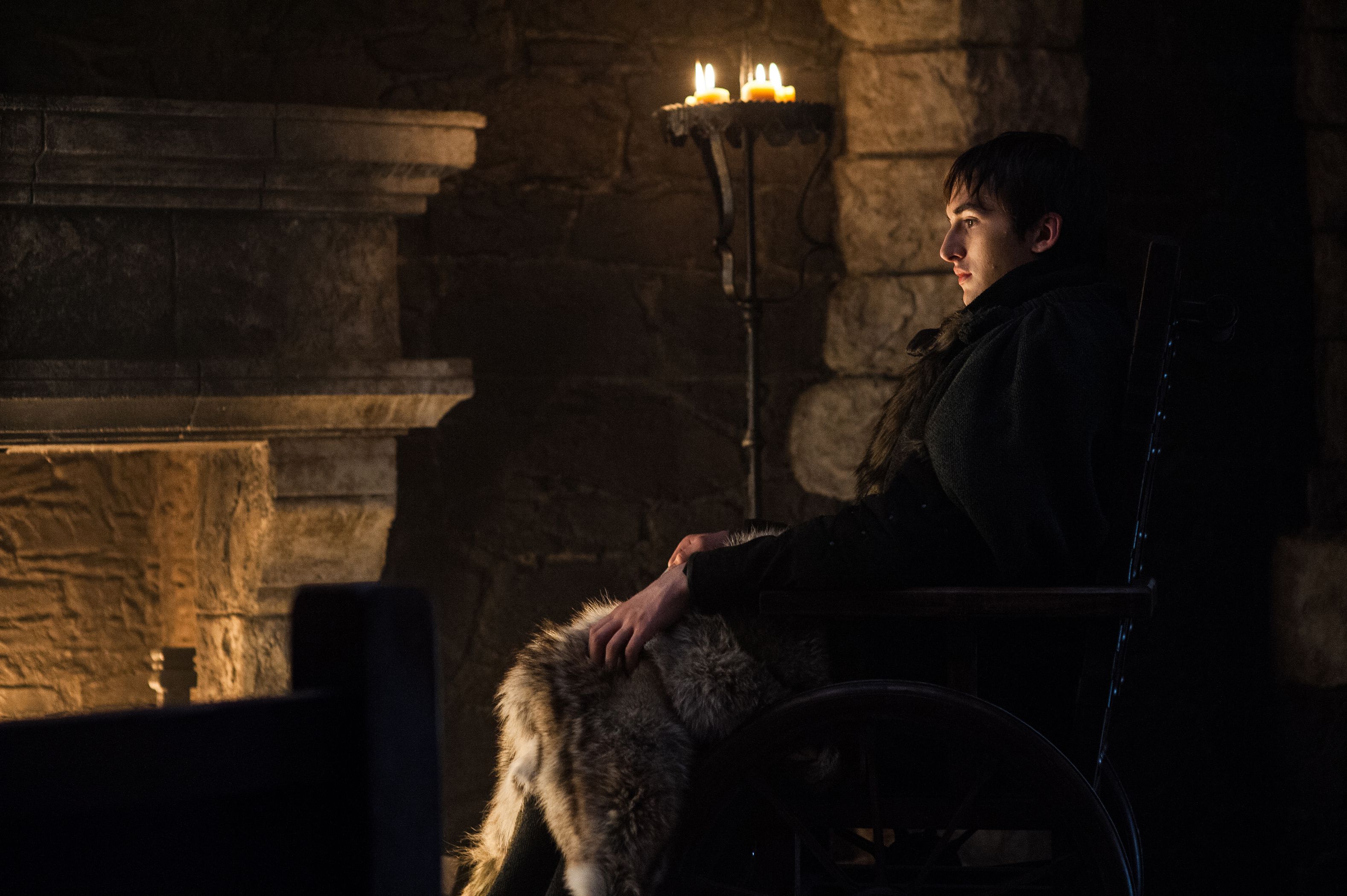
The reveal is anticlimactic, since the show has all but confirmed this information previously, and while the prospect of Jon himself learning the truth has some intrigue, it’s hard to see how it really changes the game at all in-universe. There’s effectively no real proof of Jon’s true parentage. That said, maybe there’s some secret plot-saving scroll in Sam’s carriage, and more to the point, this is a show that founded the discovery of Joffrey’s true parentage on his hair color, so maybe I shouldn’t tug too hard on that thread.
It also makes it especially awkward when this information is delivered in voiceover on top of scenes where Jon and his Aunt Dany consummate their relationship. As incestual romances go, it’s pretty mild for Game of Thrones, but between that and the continued lack of chemistry between Emilia Clarke and Kit Harrington, it’s hard to see the scene as anything other than a severely wrong-headed interpretation of Tywin’s “family is everything” message.
It doesn’t help that with repeated mentions of Dany being barren, the show seems to be hinting that only Jon can produce a child with her. Whether that’s a consequence of old fashioned Targaryen inbreeding or, god help us, The Power of Love, it’s an odd direction to take these two characters and the series as a whole, which only adds to the mildly gross quality of an already less-than-convincing relationship.
Still, one of the show’s most interesting, if not exactly healthy, partnerships follows that same blueprint and seems to reach its dissolution here. When Cersei reveals the nature of her deception to her brother, without having let him in on the plan, he is furious, both that his sister left him in the dark and that she’s going to go back on her word. She’s primed to ignore the battle between the living and the dead in the hopes of securing her own position. It’s enough to leave Jaime heading for the exit, and it’s then that she threatens to kill him, with a standoff that echoes the earlier one between her and Tyrion.
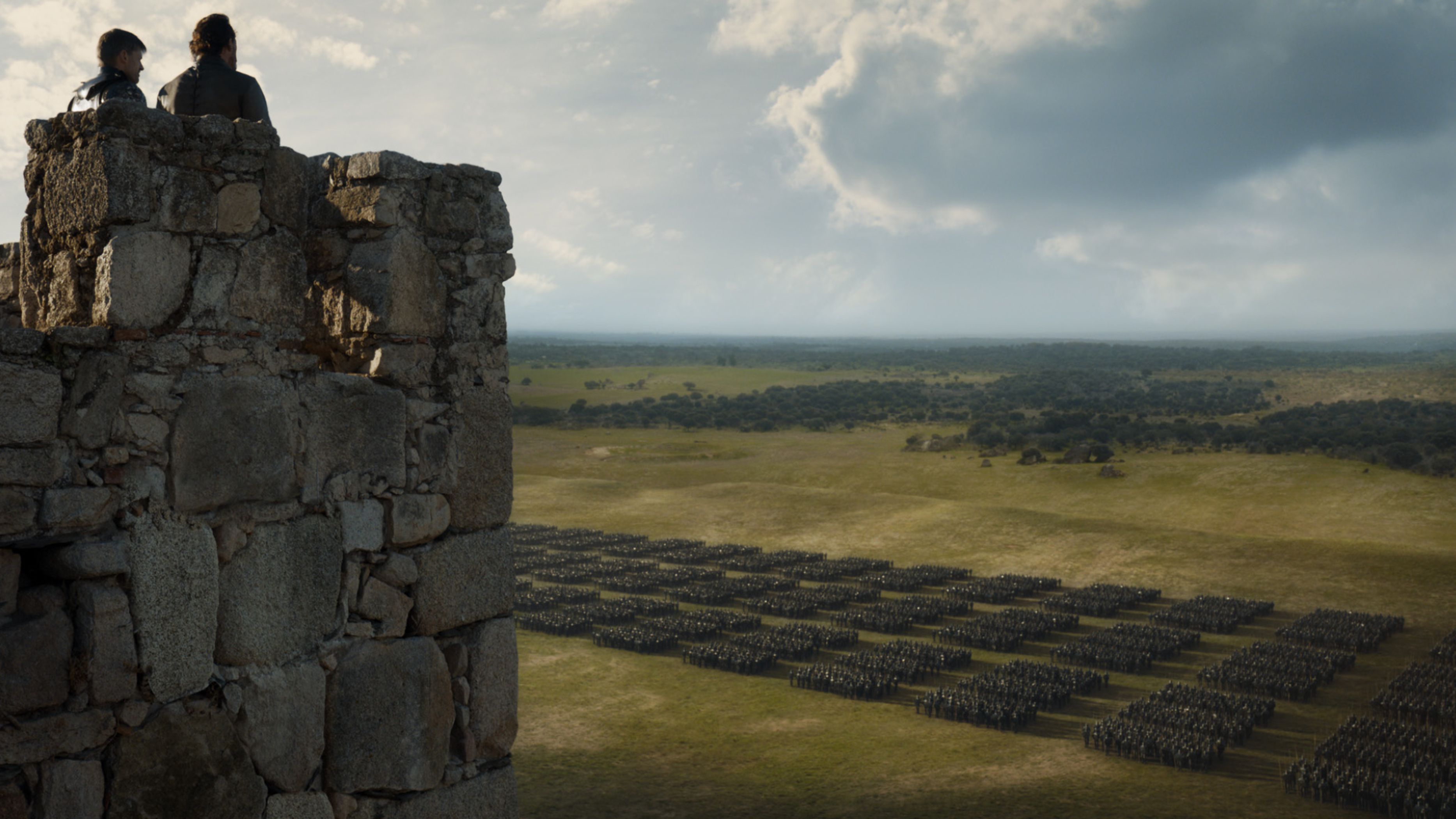
But once again, Cersei cannot go through with it. Unlike with Tyrion, where her sparing a sibling from The Mountain’s sword was all an act, here she seems genuinely unable to order her brother be killed. As craven as Cersei can be, as much as she declares that she cares about nothing, there is a part of her still tied to her twisted ideas of family, to the people she does love in her own broken way, such that there are lines even she cannot cross.
Jaime can, though. After all they’ve been through, after seeing so many things from the woman he loved and shared a family with, he can bear it no longer. The love she offers is not an honest love. It’s a mercenary love, a cruel love, the kind that their father once offered to his children. Tyrion escaped Tywin’s version of it when he left King’s Landing under cover of darkness, and now Jaime leaves its newest manifestation in broad daylight, as the snow begins to fall in the Crownlands.
Familial love can bond us, strengthen us, make us more than what we would be on our own. But when laced with lies, with fear, with cruelty, it can distort us and drive away the people we truly care about. Game of Thrones has always been concerned with the great families of Westeros, and as it closes out its penultimate season, the contrast is clear. Those who stick together, who remain loyal to the blood of their blood, come out stronger and happier, and those who cast out and deceive their family may rule, but will rule briefly, and do so alone.
Guess Who’s Back, Back Again: Lyanna Stark and Rhaegar Targaryen return in flashback form here, with Bran going back in time to witness their secret marriage. It’s an unorthodox way for HBO to remake Wedding Crashers, but I’ll give them credit for ingenuity.
So Long and Thanks for All the Blackfish: Littlefinger is the only major casualty of the finale, depending on whether anyone emerges from the rubble at Eastwatch. If chaos is a ladder, I suppose stability is a chute.
Line of the Night: “That is indeed a problem. The more immediate problem is that we’re fucked.” Apologies for rolling with profanity two weeks in a row, but Tyrion has a way of cutting through ceremony and pomp that cannot be ignored.
This Week in Lore: We get official, info-dumped confirmation that Jon Snow’s real name is Aegon Targaryen and that he is the true heir to the Iron Throne. If anyone in Westeros needs proof, they can just ask his weirdo, soothsaying brother, whom I’m sure will persuade everyone with his charm and charisma.
The Greyjoys Have a Cunning Plan: I realized this week that Euron Greyjoy is essentially a grittier, modern-day version of Lord Flashheart from Blackadder. Perhaps Theon should persuade Tim McInnerny to stop being Lord Glover and return to being Lord Percy to lend a hand.
Somebody Call Chris Jericho: Oh yeah, and The Wall comes tumbling down! Such a momentous event feels like such a formality here, to where even the spectacle of an undead dragon breathing ice and the sight of a mass of undead soldiers marching south does little to move me. Like the other weak points of this season, what should create hype and anticipation can’t help but feel a bit anticlimactic given all that precedes it.
All Men Must Recap: That’s a wrap for Game of Thrones Season 7! Thank you so much for visiting Consequence of Sound and reading these reviews each week. It’s been a thrill and a pleasure to write about this show for you, and with any luck, we’ll all reconvene in a mere 10-to-18 months to finish the series together. Keep saying “not today” to the God of Death until then!

















